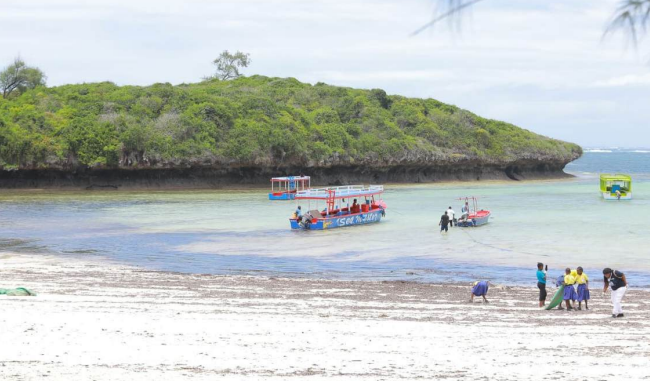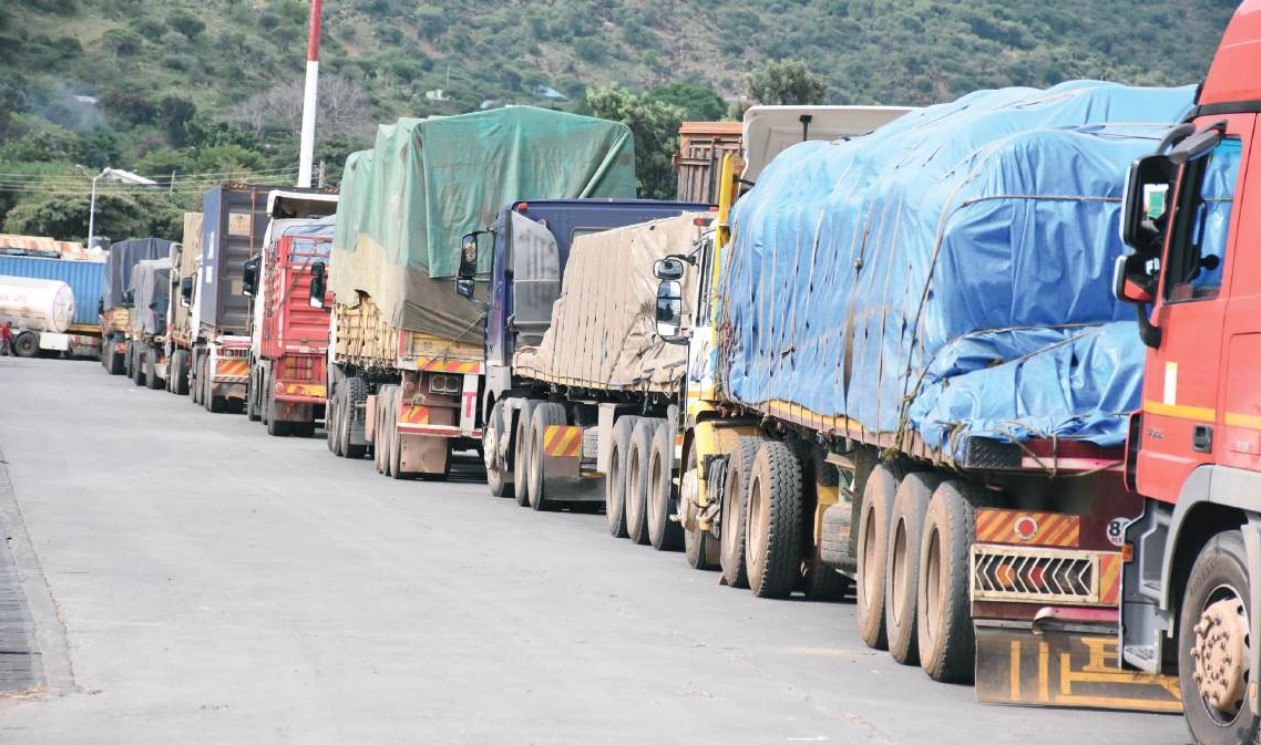
 Barracuda
Watamu beach
/CHARLES
MGHENYI
Barracuda
Watamu beach
/CHARLES
MGHENYI
Once famed for their glittering white sands and turquoise waters, the beaches of Malindi and Watamu are now fighting a growing menace—plastic pollution.
However, young environmental champions from The Learning Hub School in Malindi are taking matters into their own hands, with an ambitious eco-project aimed at restoring the coastline’s natural beauty.
The students have installed eco-friendly waste disposal bins along a 15-kilometre stretch covering Watamu Beach and the Malindi Marine Park.
Built using locally sourced, sustainable materials, the bins provide convenient waste collection points to curb littering along the shore.
“These bins will make it easier for both locals and tourists to dispose of trash responsibly, protecting marine life and keeping our beaches clean,” said Ayaan Omar, a member of the school’s Eco-Club.
“We want to inspire the community to take responsibility for our shared environment.”
The idea took shape after students noticed that pollution returned soon after their regular clean-ups. With no permanent bins in place, their efforts quickly went to waste.
Determined to make a lasting impact, the Eco-Club partnered with the Kenya Wildlife Service, local conservationists and the Malindi municipality to develop a sustainable waste management model.
“Our club has 16 passionate members who are deeply committed to protecting our coastline,” said Liana Karisa, a Grade 7 pupil.
“We want to show that small actions, like properly disposing of plastic, can make a big difference in creating a cleaner, safer environment for everyone.”
The bins, though simple, carry a strong message of shared responsibility.
Community members are encouraged to use them, while local authorities ensure regular maintenance and transportation of the collected waste to recycling centres.
Beyond environmental protection, the initiative has enhanced how students connect classroom knowledge to real-life applications.
Through the project, learners apply mathematics, science and geography to collect and analyse environmental data, bringing lessons to life.
“We compute data from our environmental activities and present the results using pie charts to measure our project’s success,” explained Karisa.
“Ayaan leads the visualisation on the board, while Levi Jilani demonstrates how equations can be represented through computer applications.”
Eco-Club patron Polycarp Odiere said the bins are not only practical but symbolic tools.
“They represent a grassroots solution to plastic pollution, proof that everyone, even students, can play a vital role in protecting marine ecosystems,” he said.
Club matron Catherine Walumbe praised the learners for their creativity and determination.
“This initiative is entirely student-driven. It shows that when young people are empowered, they can develop creative and practical solutions to the challenges facing their communities,” she said.
School manager Alphonce Menza commended the students’ leadership and vision.
“Our goal is to empower students to be part of the solution,” he said.
“This project shows how education can go beyond the classroom to address real-world challenges like marine pollution. We are proud of our students for transforming knowledge into meaningful action.”
Menza added that the school continues to make strides in conservation, earning recognition beyond Kenya’s borders.
“Last year, one of our teachers represented Kenya at the COP29 Summer Camp in Baku, Azerbaijan, a global forum bringing together representatives from eco-schools worldwide,” he said.
Teachers say the project has evolved into a cross-disciplinary learning experience, strengthening students’ reasoning, communication and reporting skills.
Headteacher Faraji Nanzala Weremba described it as a turning point in local conservation efforts.
“What began as simple class discussions and weekend clean-ups has grown into a movement. Our students are not just cleaning beaches, they are shaping attitudes, influencing policies and inspiring change,” he said.
The club now has 50 active members, each learning valuable lessons in leadership, teamwork and community engagement.
With continued support from KWS, the project will soon expand to other beaches along the coast.
Abraham Songok, deputy park warden at Malindi Marine Park, hailed the students’ effort.
“We’ve witnessed an alarming rise in plastic waste along our shores. This project by young people is both timely and inspiring. It proves that conservation is everyone’s duty. We encourage other schools and the public to follow suit and ensure plastics are properly recycled,” he said.























